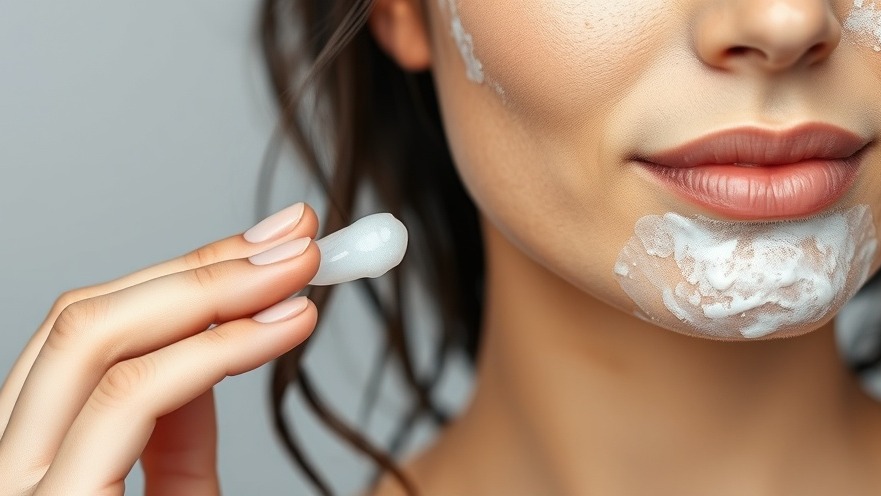
Exfoliation: The Path to Radiance
Maintaining a healthy skin barrier is crucial not only for the appearance of your skin but also for its overall health. With the right exfoliation techniques, you can revive your complexion, addressing concerns like dullness and dryness while ensuring you don’t compromise your skin’s protective shield. Not all exfoliation methods are created equal, so understanding how to exfoliate effectively and gently is key. In this guide, we explore expert advice on how to keep your skin barrier intact while enjoying the benefits of exfoliation.
Understanding the Skin Barrier
The skin barrier is like your personal shield against the outside world. It prevents moisture loss and protects against environmental irritants. A compromised barrier can lead to a host of skin issues, including dryness, irritation, and an uneven tone. Exfoliating regularly can help slough off dead skin cells and promote cell turnover, contributing to a brighter and healthier complexion. However, improper exfoliation can lead to the opposite effect, making it essential to know how to properly care for your skin.
1. Choose the Right Exfoliation Method
Dr. Tiffany Clay, a board-certified dermatologist, emphasizes the importance of selecting the appropriate exfoliation method based on your skin type:
Chemical Exfoliation: Acids like glycolic and lactic acid dissolve dead skin cells without the need for scrubbing. They are effective for those wanting to improve skin texture.
Physical Exfoliation: This involves scrubs or tools like konjac sponges that manually slough off dead skin. For sensitive skin, gentle options with fine granules are advisable.
Understanding your skin type is key in this selection process: acne-prone skin may benefit from BHAs (beta-hydroxy acids) like salicylic acid, which penetrates deeper into pore-clogging oils.
2. Look for Soothing Ingredients
When choosing exfoliants, aim for products that not only exfoliate but also contain soothing and hydrating ingredients. Products infused with hyaluronic acid and niacinamide can help keep the skin moisturized and calm after exfoliation. This is fundamental in preventing irritation that could compromise your skin barrier. Always look for formulations that prioritize skin health to achieve the best results.
3. Frequency Is Key: Don’t Overdo It
With exfoliation, more isn’t always better. It's recommended to start with exfoliating 1-2 times a week and slowly adjust as needed. Over-exfoliation can cause irritation, redness, or skin barrier disruption. Pay attention to your skin’s response; if you notice any negative reactions, reduce your exfoliation frequency. This will help you strike a balance that keeps your skin glowing without compromising health.
4. Use Gentle Techniques
Whether you opt for chemical or physical exfoliation, application matters. For physical exfoliants, use soft motions and avoid harsh scrubbing. Gentle pressing or swirling can remove dead skin without causing damage. For chemical exfoliants, follow the application guidelines closely; overusing these can be just as harmful.
As Dr. Kevin Khosa emphasizes, gentle techniques ensure your skin doesn’t suffer microtears or irritation.
5. Aftercare: Hydration Is Essential
After exfoliating, your skin needs hydration and nourishment to recover and maintain its barrier. Applying a rich moisturizer or hydrating serum post-exfoliation can help replenish moisture levels and soothe any potential irritation. This step is crucial in reinforcing your skin barrier, ensuring the fruits of your exfoliating efforts are maintained.
Common Misconceptions About Exfoliation
Despite the numerous benefits of exfoliation, there are many myths surrounding it, particularly regarding sensitive skin. Many believe that sensitive skin should completely avoid exfoliation, but this isn't true. Gentle exfoliation can actually improve skin health by preventing the buildup of dead skin that can lead to dullness and breakouts.
It’s also important to choose appropriate products. Not all scrubs or chemical exfoliants are suitable for sensitive skin. Look for formulations designed specifically for delicate skin, focusing on low-concentration acids and gentle physical exfolants.
The Final Word
Exfoliating shouldn’t feel like a chore. With the right methods and products, it can be a rejuvenating part of your skincare routine. Remember to approach your skincare with care, prioritize hydration, and listen to your skin’s needs. Embracing exfoliation can lead to healthier, more luminous skin without sacrificing its protective barrier.
As you enhance your skincare routine, consider the expert advice shared here. Reflect on your skin type, choose gentle ingredients, and prioritize a consistent, thoughtful approach. You’ll not only see the benefits of improved skin texture and appearance, but also foster a deeper appreciation for the care your skin deserves.
 Add Row
Add Row  Add
Add 




Write A Comment